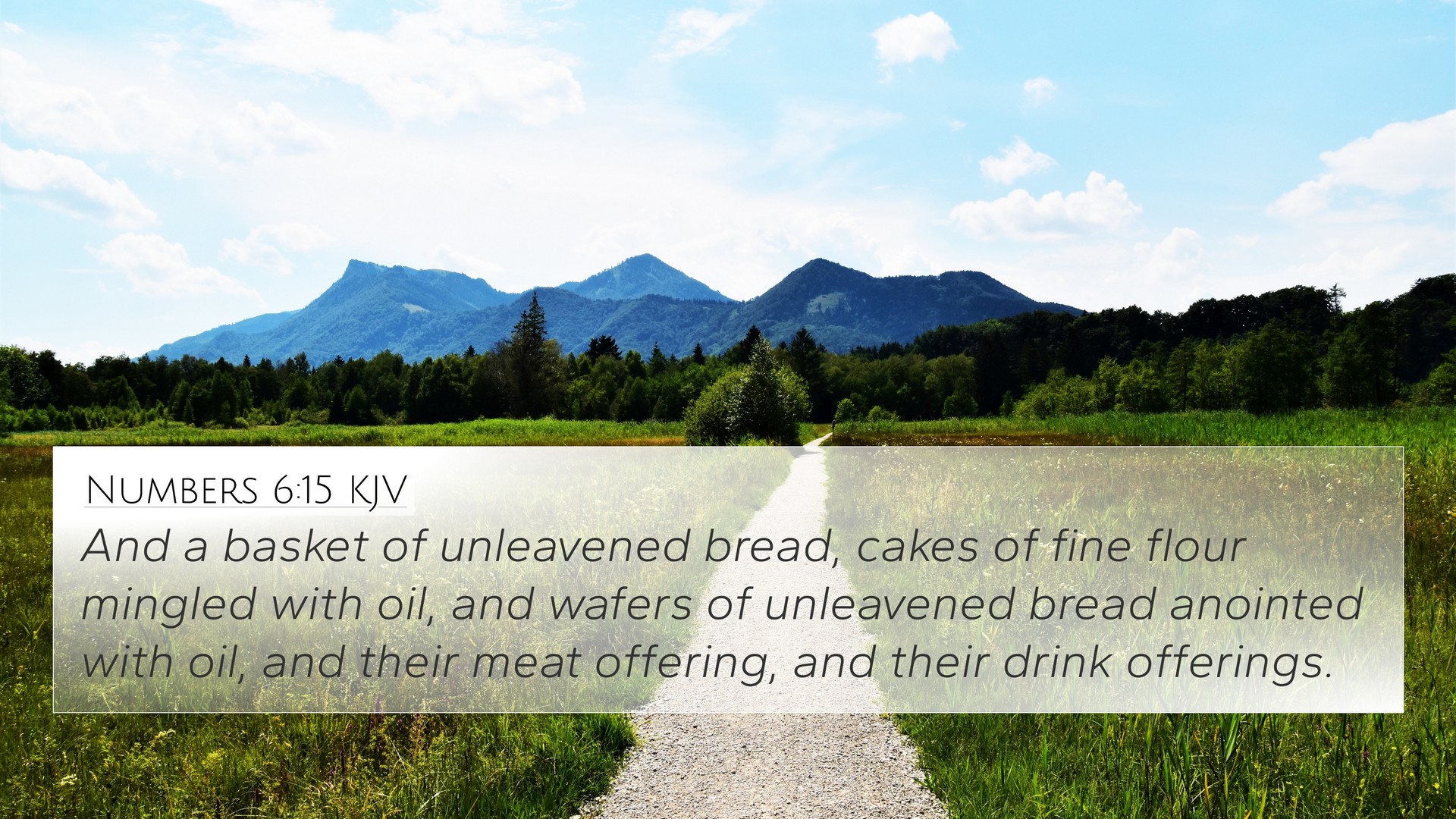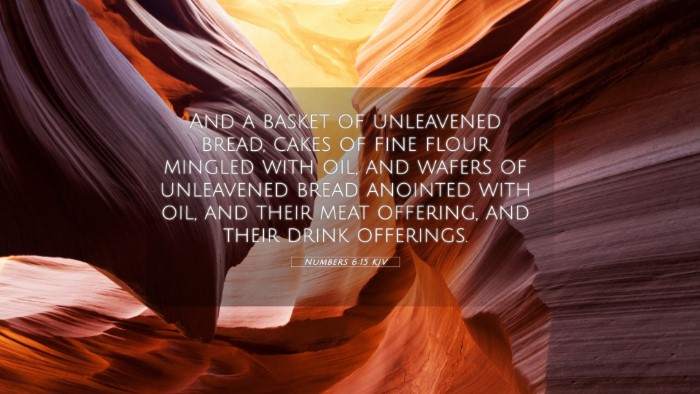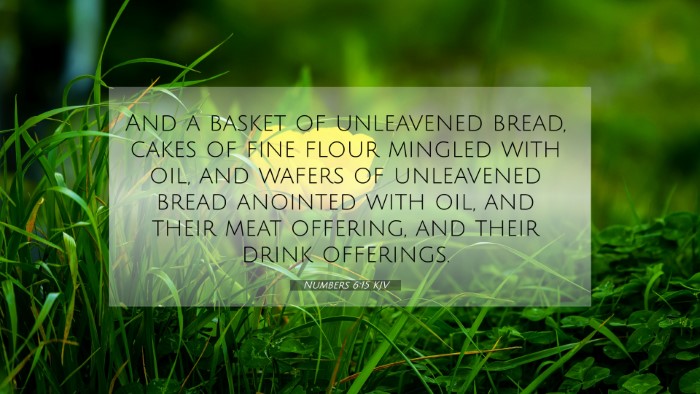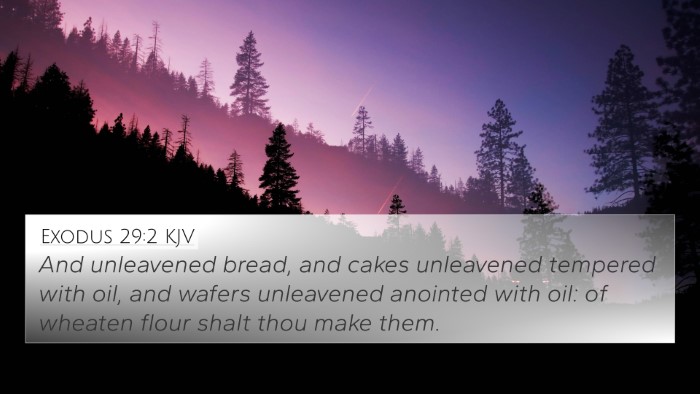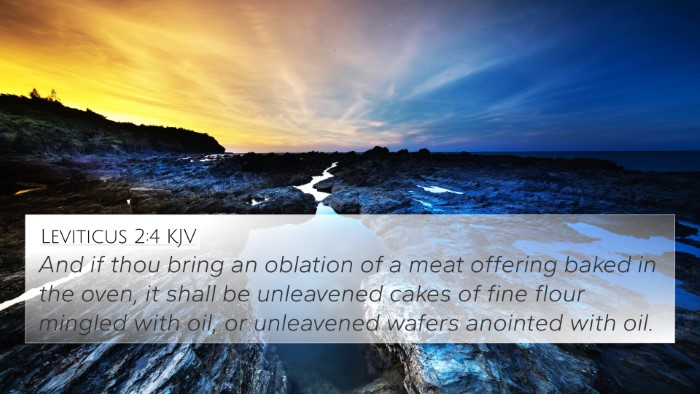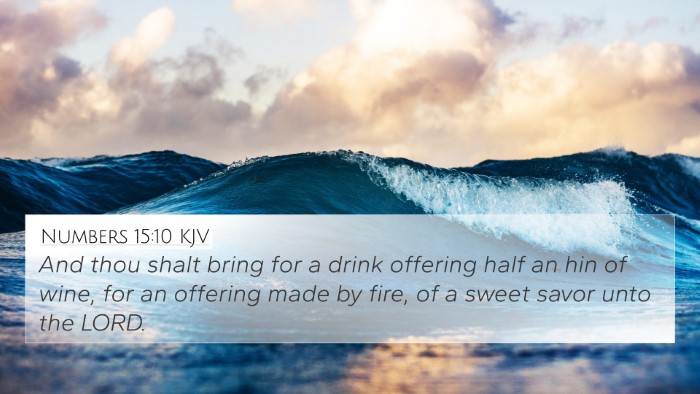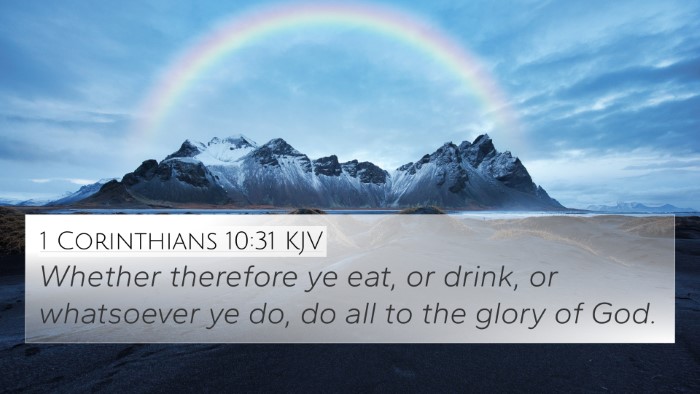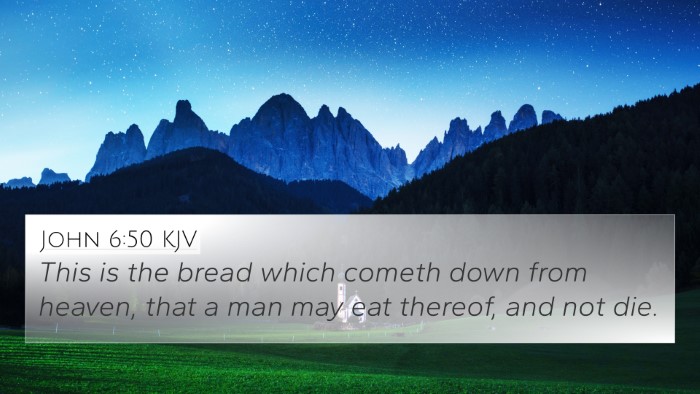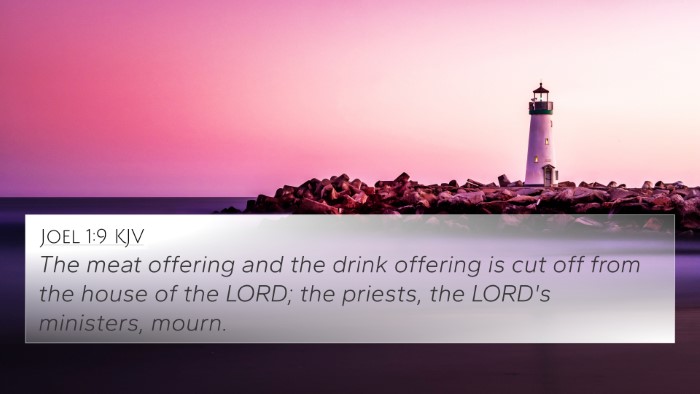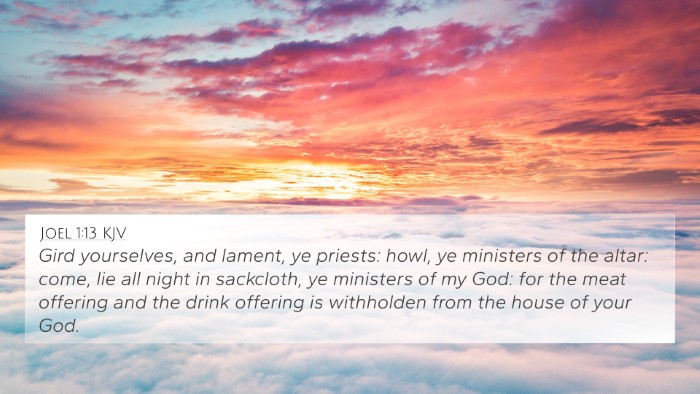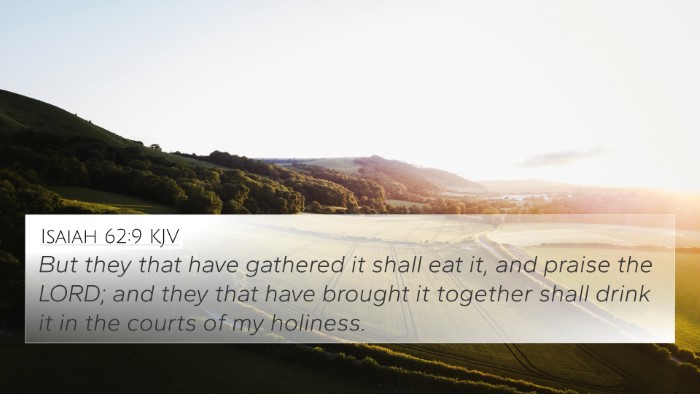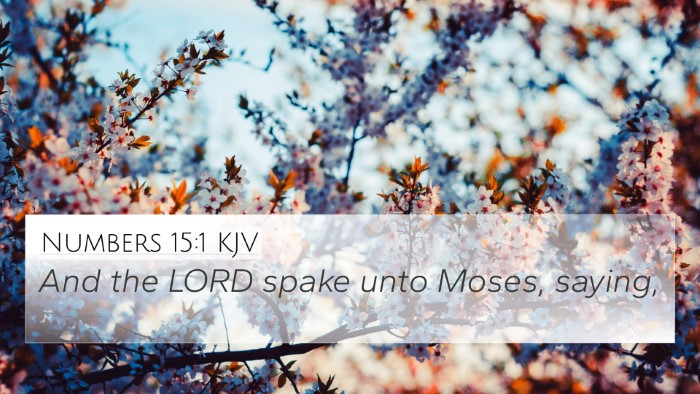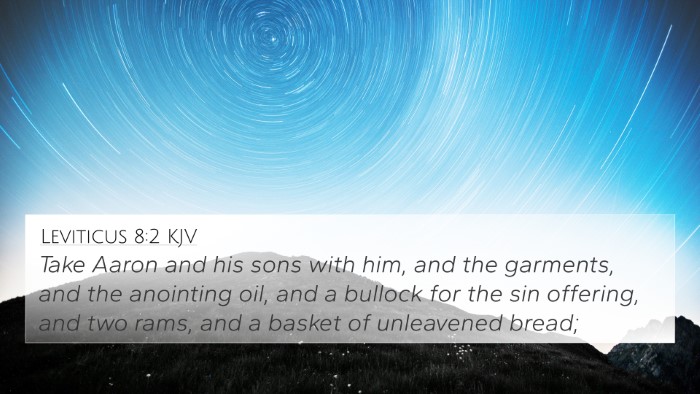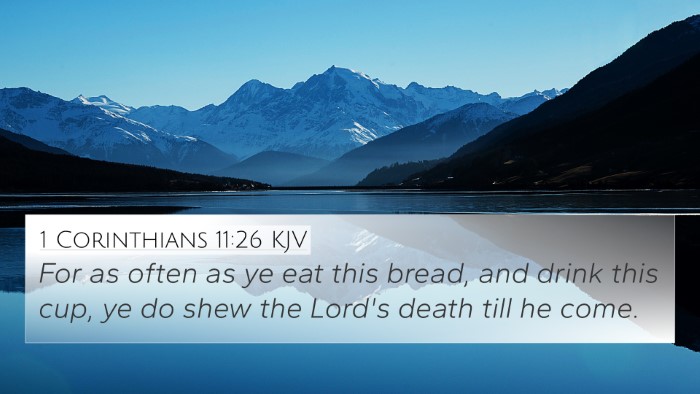Understanding Numbers 6:15
Numbers 6:15 reads: "And a basket of unleavened bread, cakes of fine flour mingled with oil, and wafers of unleavened bread anointed with oil, and their meat offering, and their drink offerings." This verse is part of the Nazirite vow, a unique commitment to consecration and separation unto the Lord.
Contextual Overview
The Nazirite vow described in Numbers 6 represents a period of dedication to God. Individuals who made this vow adhered to specific restrictions and offered sacrifices to signify their devotion when the period concluded.
Significance of Offerings
According to public domain commentaries:
- Matthew Henry emphasizes that the offerings in the vow highlight the importance of a pure heart and sincere worship in one's service to God.
- Albert Barnes draws attention to the necessity of these offerings as symbols of thankfulness and acknowledgment of divine blessings, reinforcing that one's devotion must also be expressed through concrete actions.
- Adam Clarke notes that the specific mention of unleavened bread signifies a state of purity, as leaven often represents sin or corruption.
Thematic Connections within Scripture
Numbers 6:15 connects with various biblical themes, particularly those surrounding the concepts of dedication, purity, and Divine service. Below are some significant connections and relevant cross-references:
- Leviticus 23:17 - Discusses the offering of firstfruits.
- 1 Corinthians 5:8 - Links the concept of unleavened bread with sincerity and truth.
- Romans 12:1 - Calls upon believers to present their bodies as living sacrifices, highlighting the continued theme of consecration.
- Hebrews 10:10 - Reflects on the ultimate sacrifice of Christ that fulfills the requirements of offerings.
- James 1:27 - Presents the idea of pure religion, echoing the notion of dedicating oneself without blemish.
- Matthew 5:8 - "Blessed are the pure in heart," aligning with the purity aspect of the offerings.
- Psalms 51:17 - God desires a broken and contrite heart, reinforcing the internal commitment beyond external acts.
Additional Interpretations and Insights
This verse illustrates not only the physical elements of the offerings but also their spiritual implications. Each component represents a distinct aspect of faith:
- Unleavened Bread - Symbolizes constraint from sin and a focus on God apart from worldly influences.
- Offerings of Flour and Oil - Signify the nourishment and sustenance provided by God — highlighting reliance on Him.
- Drink Offering - Represents the outpouring of life and dedication to God, aligning with the metaphoric 'pouring out' of oneself in devotion.
Cross-Referencing Biblical Texts
For a deeper understanding of Numbers 6:15, utilizing tools for Bible cross-referencing can significantly enhance one’s study experience. Here are insights on utilizing a cross-reference system effectively:
- Explore Bible concordances to locate passages that relate thematically to Numbers 6:15.
- Engage in cross-reference Bible study by noting parallel themes in both the Old and New Testaments.
- Identify connections by comparing the Nazirite vow with other forms of dedication, such as the priestly offerings outlined in Levitical law.
- Use a Bible cross-reference guide to delve into the significance of offerings in various contexts throughout Scripture.
Conclusion and Practical Application
The essence of Numbers 6:15 lies not just in the instructions provided, but in the heart behind the actions. Believers today are encouraged to reflect on their own commitments to God, ensuring that both inner and outer expressions of faith align.
By engaging in a comparative study of these scriptures, one can enrich their understanding of biblical themes and deepen their relationship with God through thoughtful meditation on His word.
